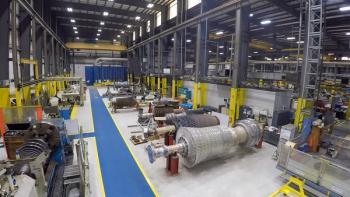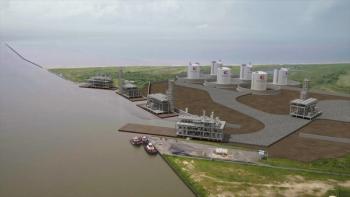
Decarbonization Pushback
Energy industry executives flip the script on unrealistic decarbonization goals
The Baker Hughes Annual Meeting at the end of January 2023 gave voice to oil and gas executives calling for a reevaluation of decarbonization policies they say may be inadvertently worsening emissions while pushing consumer energy bills upwards.
Sheikh Khalid Bin Khalifa Al-Thani, CEO of Qatargas, explained that coal consumption reached an all-time high in 2022. Why? A general shortage of oil & gas was in evidence even before the Russia-Ukraine war. That crisis only heightened the problem, especially in Europe. The Europeans gobbled up any available LNG supplies at top dollar. That left a shortfall in many other areas, and coal became the solution.
“The energy crisis in 2022 highlighted the fragility of global energy markets,” said Al-Thani. “We must balance climate and emissions reduction policy with energy security.”
He believes that while the role of renewables within the energy mix will increase, it is many years before any energy transition can realistically take place.
“Substituting natural gas for coal is the key as we cannot decarbonize immediately,” he said. “Natural gas is a necessary complement to renewables for a robust energy supply and as support for climate mitigation. Natural gas is reliable, affordable, available, and has a low carbon footprint compared to coal. This makes it a destination fuel, not a transition fuel.”
Standing in the way is a policy and financing puzzle that makes it difficult and sometimes impossible to receive investment for natural gas projects. Several speakers at the event laid out how funding for large-scale natural gas and LNG projects is often thwarted as the investment field has been told that natural gas won’t be around by 2030. This idea comes from policy makers who set decarbonization targets without regard to the realities of the situation. When disruption comes, short-term policies are rapidly adjusted to accommodate a sudden switch to LNG, as in Europe in 2022. But long-term work to develop new oil and gas fields and build the infrastructure to support them is in neglect – and has been for many years.
Accordingly, Qatargas plans to boost gas production significantly over the next decade. Al-Thani said the company would do so while reducing its carbon footprint. It has already cut greenhouse gas (GHG) emissions by 12% compared to 2013 and CO2 emissions by 70% via injection and reduction of flaring. Methane emissions, he said, are already less than 1% of the company’s GHG profile.
Return of Energy Realism
Nasir Al-Naimi, Executive Vice President Upstream of Saudi Aramco (the largest oil & gas producer in the world), called for a return to energy realism
“The impractical reality that oil and gas must be replaced has fueled chronic underinvestment, down by more than half from 2014 to 2021,” he said. “We must shatter the misleading narrative that oil & gas can be easily and quickly replaced.”
He laid out the statistics. Fossil fuels supplied 82% of the world’s energy needs in 2021 compared to 7% for renewables. The energy transition, he stressed, will happen at different speeds in different regions as they are at varying stages of development and industrialization. With three quarters of a billion people still being without electricity, the priority in these places it to get power by whatever means necessary.
“Each country has its own unique situation so we must develop more realistic plays for affordable, reliable, and sustainable energy.”
Saudi Aramco plans to boost production from its current level of around 12 million barrels of oil per day (boe/day) to 13 boe/day by 2027 and increase gas production by 50% by the end of the decade. In parallel, the company is investing heavily in carbon capture, renewables, and hydrogen.
“We must convince the world that oil & gas will play a prominent role in our energy future,” said Al-Naimi.
Energy Trilemma
Lorenzo Simonelli, Chairman and CEO of Baker Hughes, laid out the energy “trilemma” – the three parts of the dilemma are the balancing of sustainability with affordability and security.
“There is no future without hydrocarbons, just as there is no one climate savior,” said Simonelli. “Instead of focusing on the fuel source, we need to focus on emissions.
Newsletter
Power your knowledge with the latest in turbine technology, engineering advances, and energy solutions—subscribe to Turbomachinery International today.




